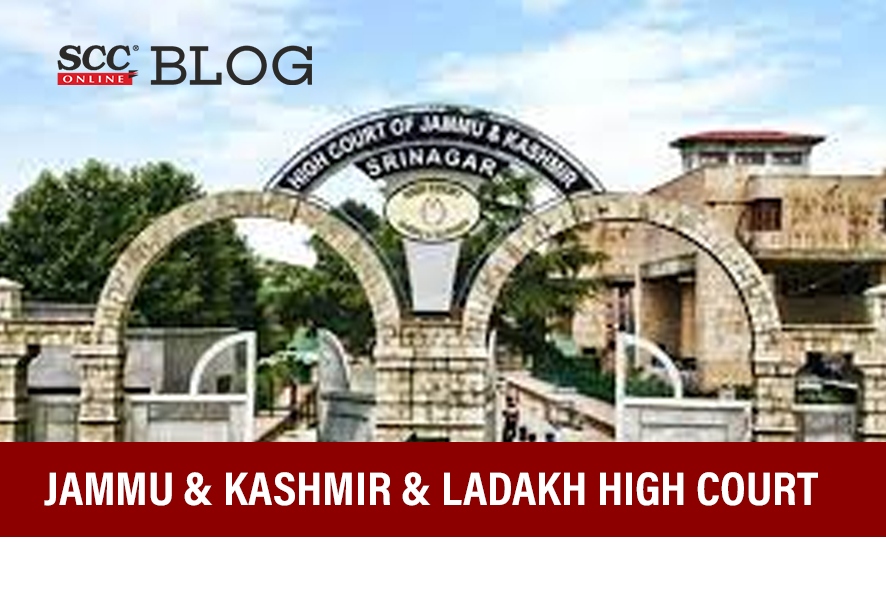Jammu and Kashmir and Ladakh High Court: While deciding the instant intra court appeal wherein Indian Tourism Development Corporation Ltd., (ITDCL) had challenged the decision of the writ court regarding reinstatement of certain retrenched workers, the Division Bench of Rajnesh Oswal* and Mohan Lal, JJ., held that once the employer has not followed the statutory obligation under Section 25-F of Industrial Disputes Act, 1947, then the acceptance of the retrenchment amount would not to be an estoppel for the workmen to challenge the order of retrenchment.
The respondents, after being retrenched by ITDCL under Section 25-F of the Industrial Disputes Act, 1947 on the ground of closure of the establishment, raised a dispute before the Conciliation Officer (Deputy Labour Commissioner), Kashmir Division. However, the conciliation efforts failed, which resulted into a reference of the Government to the Industrial Tribunal-cum-Labour Court.
The Tribunal, after considering the rival contentions of the contesting parties, directed the ITDCL to reinstate the respondents with full back wages on revision basis, along with other consequential benefits with 9% interest on full back wages.
The Appellant-Corporation challenged the aforesaid award passed by the Tribunal through a writ petition, wherein the Writ Court directed the appellants to reinstate 2 out of the 5 retrenched respondents and directed the Tribunal to re-consider its decision vis-à-vis remaining 3. Aggrieved with this decision, the ITDCL preferred the instant appeal.
Perusing the facts and legal trajectory of the case, the Court noted that 3 out of 5 respondents attained superannuation as a result of which the Writ Court directed the Tribunal to re-visit and re-consider their case for the payment of compensation in lieu of reinstatement, besides the grant of retiral benefits in their favour. The Court pointed out that this showed that ITDCL have accepted the fact that the order of retrenchment was bad in law qua the Respondents who had attained superannuation.
Perusing the Tribunal's award, the Court observed that the Tribunal found ITDCL could have passed the order for voluntary retirement of the workmen and given them all the retirement benefits, or it could have transferred these employees. “In view of above findings returned by the Tribunal, it is evident that, besides returning a finding that there has not been valid retrenchment of the Respondents in terms of Section 25-F of the Act of 1947, the Tribunal has also found the retrenchment of the Respondents as discriminatory”.
The Court also noted the Tribunal finding the respondents were not paid retrenchment compensation at the time of retrenchment in terms of Section 25-F of Industrial Disputes Act, 1947 but thereafter. The Court further noted that the findings returned by the Tribunal are findings with regard to facts and, therefore, same cannot be assailed in a writ petition, unless and until the same are perverse.
Invoking the principle that “if the manner of doing a particular act is prescribed under any Statute, then the act must be done in that manner only”, the Court stated that from the records, it has been established that the retrenchment amount was paid to the respondents in utter disregard of Section 25-F of the 1947 Act. Once an act prescribed under any statute is not done in accordance with the conditions prescribed for its performance, then the doer of the said act cannot derive any benefit of that Act. This principle of law is strictly applicable in the instant case as ITDCL did not proceed in terms of Section 25-F of 1947 Act.
Relying on cases decided by the Supreme Court, the Division Bench stated that when the termination of the workmen is found to be illegal on account of procedural defect, then, in such cases, the payment of compensation should be the rule and where the termination is on account of unfair labour practice, then the reinstatement should be the rule.
With the afore-stated observations, the Division Bench only modified the writ court's decision pertaining to the superannuation of the respondents.
[Indian Tourism Development Corporation Ltd. v. Fayaz Ahmad Sheikh, 2023 SCC OnLine J&K 171, decided on 10-03-2023]
*Judgment was authored by Justice Rajnesh Oswal
Advocates who appeared in this case :
Appellants: Jahangir Iqbal Ganai, Senior Advocate with Omais Kawoos, Advocate
Respondents: Mohammad Iqbal Dar, Advocate with Mohammad Yawar, Advocate






